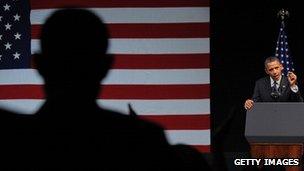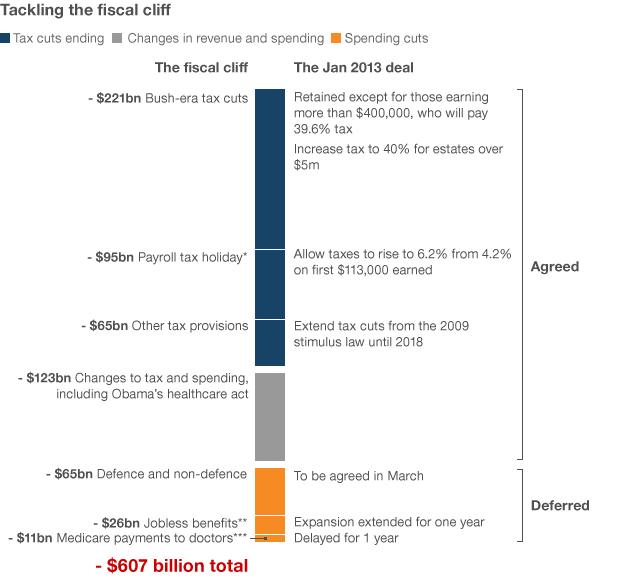Q&A: The US fiscal cliff
- Published

President Obama now faces another fight over the debt ceiling
A deal on the so-called "fiscal cliff" has been reached.
A 31 December deadline focused the minds of politicians, but it came down to the wire.
The US only managed to pass legislation to impose higher taxes on the wealthiest Americans and postpone the start of big spending cuts on 1 January.
Failure to reach a deal would probably have sent the US economy back into recession.
What was the fiscal cliff?
How did we get to the deal?
What is the deal?
What happens next?

Failing to reach a fiscal cliff deal could have had a global economic impact, analysts say
What would have happened if we had sailed over the cliff?

* The payroll tax was cut by 2% two years ago to stimulate the economy ** The federal Emergency Unemployment Compensation program, which pays recipients while they search for a job, was due to end *** The “doc fix” is short term funding for Medicare providers to ensure salaries remain stable.